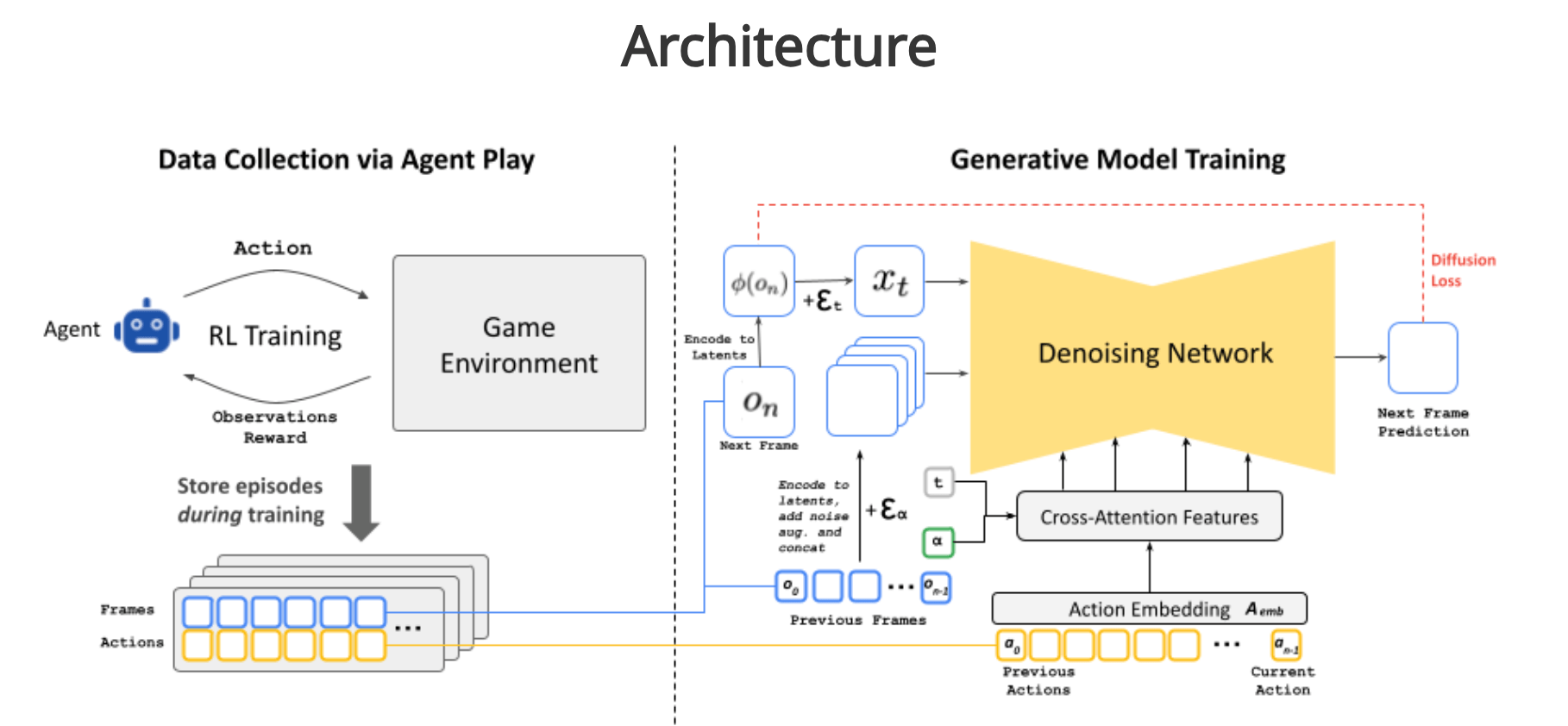Revolutionizing Game Development: The Rise of GameNGen
GameNGen is an advanced game engine that utilizes neural models to transform how video games are created and experienced. Developed through a collaboration between Google Research and Tel Aviv University, this innovative approach enables real-time interaction with intricate gaming worlds, eliminating the need for traditional game engines.
A Breakthrough with Speed and Quality
According to research findings, GameNGen successfully simulates the classic game DOOM at speeds exceeding 20 frames per second, maintaining visual fidelity that rivals the original experience.
The Mechanism Behind GameNGen
The engine’s core functionality is rooted in diffusion models, a prominent type of generative AI employed in media creation. The process initiates with a reinforcement learning (RL) agent playing the game, logging its actions and observations. This collected data trains a diffusion model to anticipate subsequent frames by analyzing a sequence of previous frames and actions. This method facilitates the simulation of complex game dynamics, allowing for the management of health, ammo, combat with enemies, and environmental interactions across extended game scenarios.

Overcoming Simulation Challenges
GameNGen effectively tackles the hurdles associated with simulating interactive environments, which often rely on a continuous input of actions during generation. By incorporating conditioning augmentations, the model provides stable auto-regressive generation across lengthy sequences, mitigating potential issues like sampling divergence.
AI-Generated Gaming: A Glimpse into the Future
As we look to the future, the proof of concept presented by GameNGen hints at significant potential developments within the gaming sector. AI-driven models like GameNGen may pave the way for games that are automatically generated instead of being written by hand, similar to how neural models produce images and videos today. This shift could simplify and reduce the costs of game development, allowing creators to design and alter games via textual descriptions or reference images instead of traditional programming methods.
Enhancing Realism and Interactivity
Moreover, the ability of AI models to simulate interactive settings in real-time could significantly boost the realism and engagement of games. As advancements in AI methodology continue, we may witness the creation of more immersive gaming experiences where non-player characters (NPCs) behave authentically, and environments dynamically adapt to player actions. This evolution could enhance storytelling and gameplay, as AI-powered games adjust to cater to individual player preferences and skill levels.
Procedural Generation and Infinite Replayability
The integration of AI into game development also promotes procedural content generation, allowing developers to craft vast and diverse game worlds with reduced manual input. This innovation can lead to infinite replayability, as AI models continually generate new levels, quests, and challenges tailored to player interactions and choices.
Data-Driven Insights for Enhanced Experiences
The future role of AI in gaming promises to enhance analytics and player experience modeling. By leveraging predictive capabilities, developers can gain valuable insights into player behaviors and preferences, enabling them to adjust game mechanics and difficulty levels in real-time. This data-centric approach will likely result in more engaging and personalized gameplay experiences, along with improved performance and player retention.
Potential Beyond DOOM
While GameNGen has showcased its capabilities using DOOM as a test case, the creators foresee the application of this technology across various games and interactive software systems. Ongoing research aims to refine the model further, expanding its memory and enhancing its capacity to manage more complex environments, ultimately enriching the realism and interactivity of AI-generated gaming.




